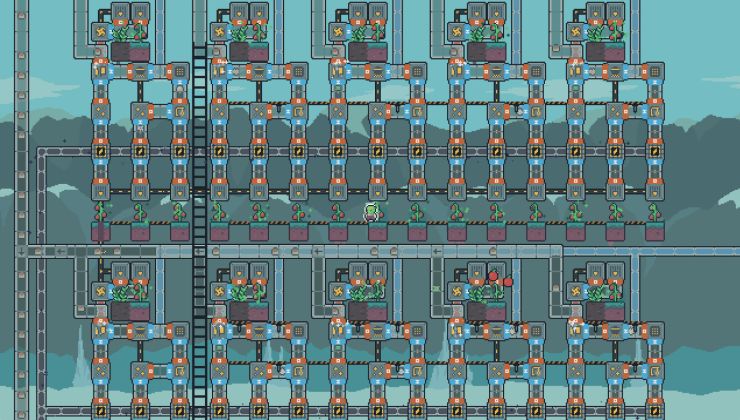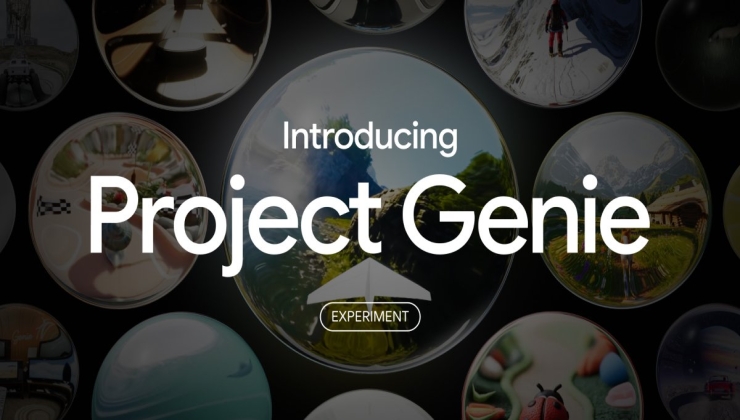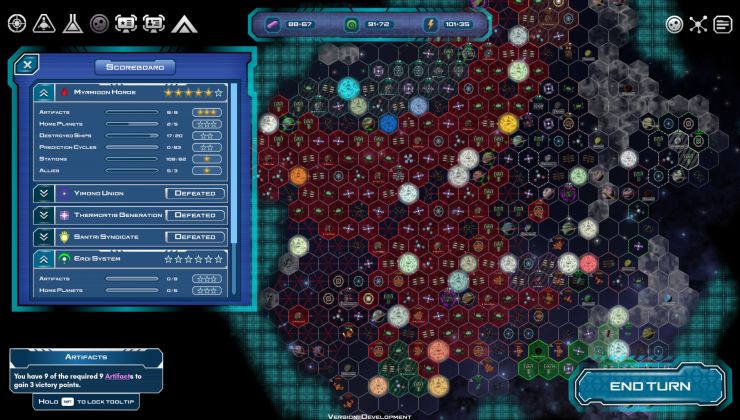Second Face Software have announced that their incredibly popular Portal: Revolution mod for Portal 2 has dropped the Native Linux build.
They've had a Native Linux build for a long time, but it became quite problematic and they weren't able to solve the issues players kept encountering. So instead, they're going to ensure it works with Proton where the issues didn't happen.
As they mentioned in their announcement on Steam:
Portal: Revolution, from the start, has included a native Linux build. As some players have recently reported, it was broken because of recent Steam updates. To fix this we have decided to remove the native Linux binaries in favour of Proton. Don't panic.
Our native Linux build sucked. You may have experienced frequent hangs and stutters related to gel rendering or other strange bugs. This stems from a bug in our multithreaded rendering code for gel blobs, and despite our best efforts we were not able to fix it. To make matters worse, it only happens on the native Linux build. Windows and Proton are not affected.
Because of these two reasons we'll ditch the native build and run the game through Proton. Performance should be comparable, if not even better at times and stability is definitely improved.
Valve rated it Steam Deck Verified with the Native Linux version, so this means it will need to be reviewed again with Proton by Valve, otherwise it will cause problems on Steam Deck. For now, you may need to manually opt into using Proton for it in the properties -> Compatibility menu for the game on Steam to run properly.

Direct Link
In related news, earlier this year they also announced Portal: Revolution 2 is in development, so there's more fun to come for Portal fans.
I'm aware that maintaining native Linux games can be nasty for game devs.
In my opinion, proton is the better technical choice with its modern proven vulkan-based rendering. The proton version might even outlast both the windows and the (theoretical) native linux version.
I recently got GZDoom and Raze compiled to run with Steam Linux Runtime using the official distrobox image...
As long as it's fully playable via Proton, I don't have any problems with that.In theory, I agree with that.
I'm aware that maintaining native Linux games can be nasty for game devs.
But I see one problem: What do devs actually do in case there is a bug in their game specifically with Proton? Do debuggers, etc. work normally through the compatibility layer?
Last edited by tohur on 6 Aug 2025 at 7:37 am UTC
It has proven to be benefical for Linux to be able to play games through Proton. It's the success the Steam Deck builds upon.
If a dev goes the way to support a native build, they have my special gratitude. If they decide to drop the native build but still make sure it works with Proton, I'm all ears.
What do we want? Playing games! Where do we want to play them? On Linux! Can we do that? YES!
In the long run a single build is easier for developers to test and support, and Proton can keep games running on Linux practically forever after developers move on or shut down. A layer to continue supporting games like Proton just makes more and more sense as time goes on.In addition to this, and I keep seeing the following thrown around, but the concept of "targetting Proton" instead of plain Windows can be a thing apparently. It's a long shot but I can see this becoming a reality, where the single build devs would support would in fact be a "Proton" build, that works on Windows of course, but also Linux, MacOS and even different computers archetictures like how we've been seeing Valve working on ARM translation stuff behind the scenes.
This is all highly ambitious of course, but unless all the users who have been bringing it up are talking out of their ass, wouldn't it be a desired goal ?
Last edited by Pyrate on 6 Aug 2025 at 10:27 am UTC
In the long run a single build is easier for developers to test and support, and Proton can keep games running on Linux practically forever after developers move on or shut down. A layer to continue supporting games like Proton just makes more and more sense as time goes on.Yes! Also developers don't need to invest time to learn developing for, or even run their builds on, Linux: they just need to keep using Microsoft solutions everywhere!
This is truly awesome!
Proton is also properly open source with Wine, DXVK and so on. You have to remember, we're 99% of the time talking about completely proprietary games, so the open source layer to keep them running makes sense. It's a shame some are still so militant about refusing to accept the reality of our platform for gaming years after Proton was released.
Native Linux builds tend to be lacking in basic features and far buggier in generalSo is that a statistic or an anecdote? Because my anecdote is, nearly all the games I play are native, and I never have any problems. When I have problems it's nearly always with a Proton game not working, even though I play far fewer Proton games. Although lately my main annoyance is for some reason my Dosbox Steam games are just not starting at all. I haven't played MOO2 in ages now because of that.
So I'd be wary of this kind of generalization. We both have anecdotes pointing in different directions, but I doubt either of us have data.
As to the usefulness or otherwise of native Linux builds, Liam's perspective makes complete sense as long as you assume Microsoft will never again be very actively hostile to Linux. This might be the case, but it seems to me like a poor gamble. Proton is a great idea and I support it strongly, but this is not an either/or thing. It's like the American civil rights movement--there's been a lot of argument over whether King was good and Malcolm X was bad or the other way around, but it is a stupid argument because they needed both (You can tell because the authorities wanted both of them dead, and probably had both of them killed). It's not that one was bad and the other was good, it's that one was the bad cop and the other was the good cop. King could implicitly say "You can deal with me being polite and nonviolent, or you can deal with Malcolm." Native Linux and Proton are not quite the same dynamic, but they are both important and I really don't think it's wise to discount either.
Put it this way: Proton is not the end game. Even if an awful lot of games right now either run on Proton because they're legacy Windows games, or are written now for Windows with some consciousness of Proton, we also want a vigorous native Linux game-writing platform. I mean, how silly would it be if we achieve world domination market share and to write a game for the world dominant platform, you have to write for DX12 on legacy Windows so a translation layer can translate it?!
It's a long shot but I can see this becoming a reality, where the single build devs would support would in fact be a "Proton" build, that works on Windows of course, but also Linux, MacOS and even different computers archetictures like how we've been seeing Valve working on ARM translation stuff behind the scenes.I could see this happening, whether or not it has M$'s support: Proton becoming a "universal" container/environment for software that allows developers to focus on one build that will run on multiple operating systems and/or hardware. If software developers want this as a standard, M$ might try to undermine it but the only impact would be that the games and other applications would not run in M$'s proprietary environment, leaving M$ out of the loop and looking bad.
Some developers might still choose to produce software native to the host environment (maybe for speed, security, or other reasons) but it leaves room for interesting possibilities that we didn't have before...
I will say this is the only philosophical argument for Proton/Wine that makes any sense to me. The pragmatic argument fails, at least in a theoretical sense, because if the objective is to run the game with the least friction, with the method being irrelevant, you might as well just run it on Windows. If however you accept that GNU/Linux simply is not structured for proprietary programs (and quite probably shouldn't be), containerizing those makes more sense. I would say that getting games running on free software engines (at a minimum) is a better solution than either native binary ports or compatability layers. The fact remains however that cross-platform proprietary development is not actually impossible though, and can in fact lead to more robust and better designed code, so it still seems worth the try (if we have too at all that is). I still think that if Valve truly wanted to put their money where their mouth is, and actually support Linux, they would continue developing Proton while offering a distribution fee discount to developers for games that support SteamOS natively.
Last edited by Technopeasant on 6 Aug 2025 at 9:42 pm UTC
Last edited by Purple Library Guy on 6 Aug 2025 at 10:30 pm UTC













 How to setup OpenMW for modern Morrowind on Linux / SteamOS and Steam Deck
How to setup OpenMW for modern Morrowind on Linux / SteamOS and Steam Deck How to install Hollow Knight: Silksong mods on Linux, SteamOS and Steam Deck
How to install Hollow Knight: Silksong mods on Linux, SteamOS and Steam Deck